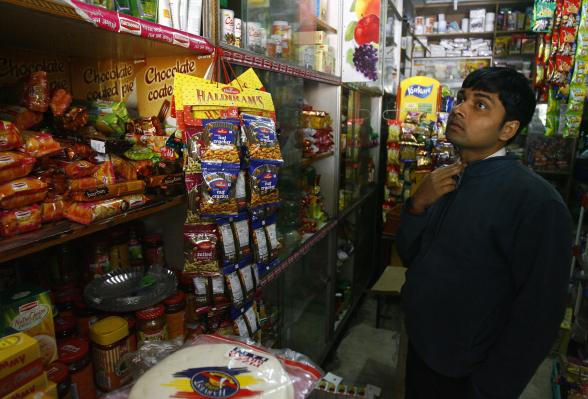The race to win the ubiquitous neighborhood stores is on in India. A day after Facebook invested $5.7 billion in Reliance Jio Platforms to serve tens of millions of neighborhood stores in the country, the world’s largest e-commerce firm has launched “Local Shops on Amazon.”
The program will help customers discover products from local shops in their city. These shops will deliver the items themselves. In the event they want to service customers outside their serviceable area, they can work with Amazon to fulfill those orders, the company said.
“This is expected to be a win-win, as customers benefit from access to greater selection, faster deliveries, and additional value-added services, and local shops can transform themselves into digital stores,” said Gopal Pillai, VP of Seller Services at Amazon India, in a statement.
Amazon said it piloted the “Local Shops on Amazon” program six months ago and has already on-boarded 5,000 local shops and retails from over 100 cities across India.
These shops can list a variety of items on Amazon including products ranging from consumer electronics to mattresses, kitchen items to grocery and consumables, apparel and shoes to gifts, and even fresh flowers and cakes.
It’s not the first time Amazon has moved to work with neighborhood stores, locally known as kiranas. In January this year, Amazon announced the “I have space” program wherein it had partnered with thousands of neighborhood stores across India to use them to store and deliver goods.
Amazon also maintains an India-specific program called Amazon Easy that allows customers in smaller markets to get access to the convenience of online shopping. Under the Amazon Easy umbrella, Amazon India helps break down various transaction barriers for first-time online shoppers like trust, lack of internet access, language as well as digital payments, to embrace e-commerce.
The company said today that new shops can also sign up for “I have space” and “Amazon Easy” programs.
These efforts from Amazon and other firms underscore just how vital neighborhood stores remain for shoppers in the country. Early this year, Amazon said it was investing an additional $1 billion in India to “digitize micro and small businesses in cities, towns, and villages across India, helping them reach more customers than ever before.”
These mom-and-pop stores offer all kinds of items, pay low wages and little to no rent. Since they are ubiquitous (there are more than 30 million neighborhood stores in India, according to industry estimates), no retail giant can offer a faster delivery. And on top of that, their economics are often better than most.
On Wednesday, Facebook said it would explore ways to integrate WhatsApp with JioMart, a joint venture between telecom network Reliance Jio and Reliance Retail, the largest retail chain in the country with presence in over 6,500 cities and towns. Both Jio and Retail are subsidiaries of Reliance Industries, India’s most valued firm.
The collaboration may allow users to find local stores around them on WhatsApp, talk to store operators and place orders from within the Facebook-owned instant messaging service, said Ajit Mohan, a Facebook VP who spearheads the company’s business in India, in an interview with TechCrunch.
“You can browse shops and talk to the shop owner. And ultimately, where we do want to take this flow is for you to be able to place your orders,” he said.
E-commerce is still at an early stage in India, accounting for just 3% of total retail sales, according to industry estimates.
